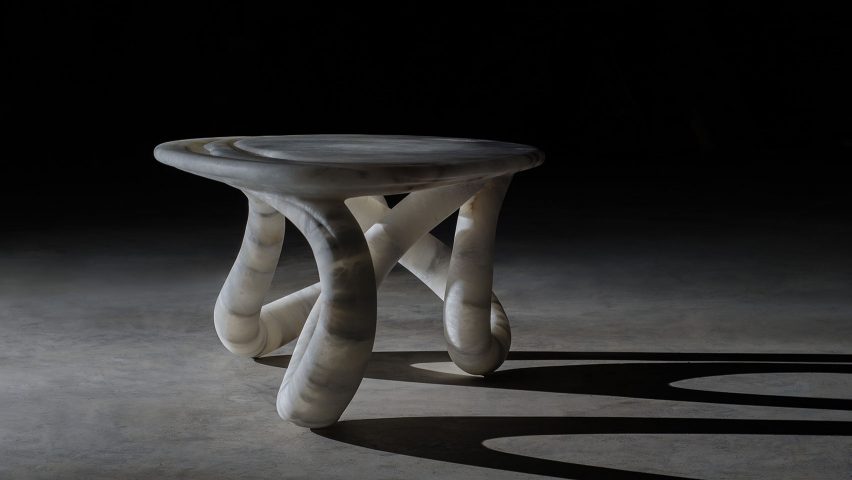
Amarist Studio unveils sculptural alabaster Aqua Fossil collection
Dezeen promotion: after investigating the history and properties of alabaster stone, Barcelona-based Amarist Studio has created a set of designs that treat the material like a "moldable plastic element".
The new series of works, titled Aqua Fossil, was sculpted using alabaster quarried close to the studio.
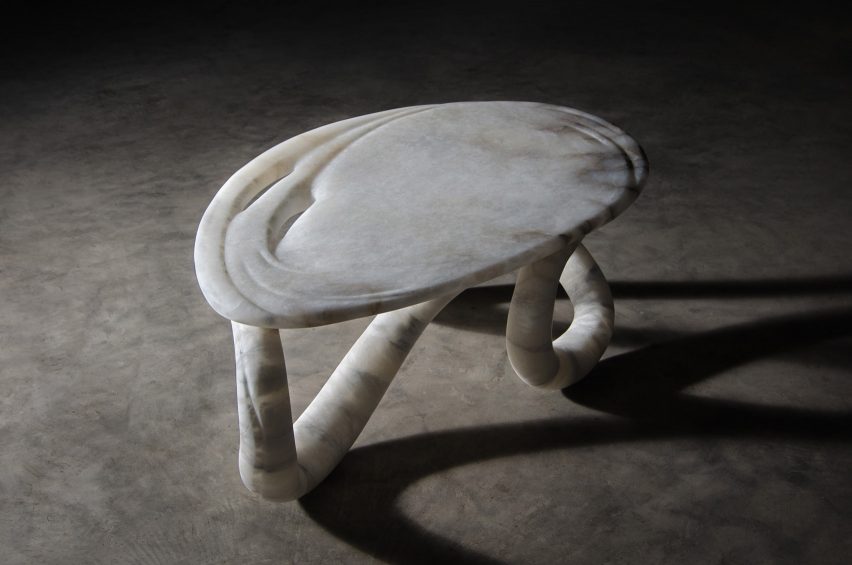
This pale stone was formed from layers of calcium sulphate compressed under the sea, which after millions of years is now a desert in the Ribera del Ebro area.
It is celebrated for its fine grain, which makes it easy to carve and shape, and its translucency – lending it particularly well to lighting designs.
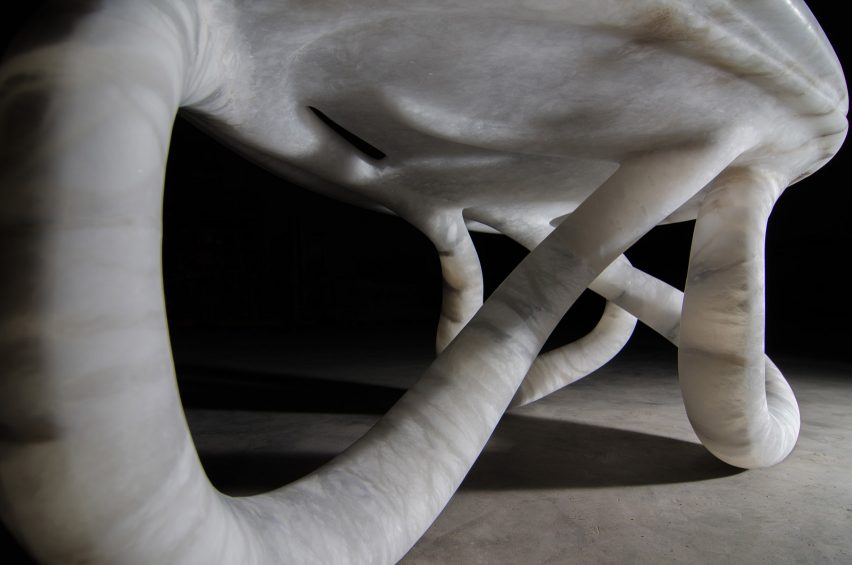
When researching the stone's geological formation, Amarist Studio founders Arán Lozano and Clara Campo were inspired by the fact that the material is made up of just two molecules: calcium sulphate and water.
They therefore designed and shaped their collection to resemble what they describe as "fossilised water".
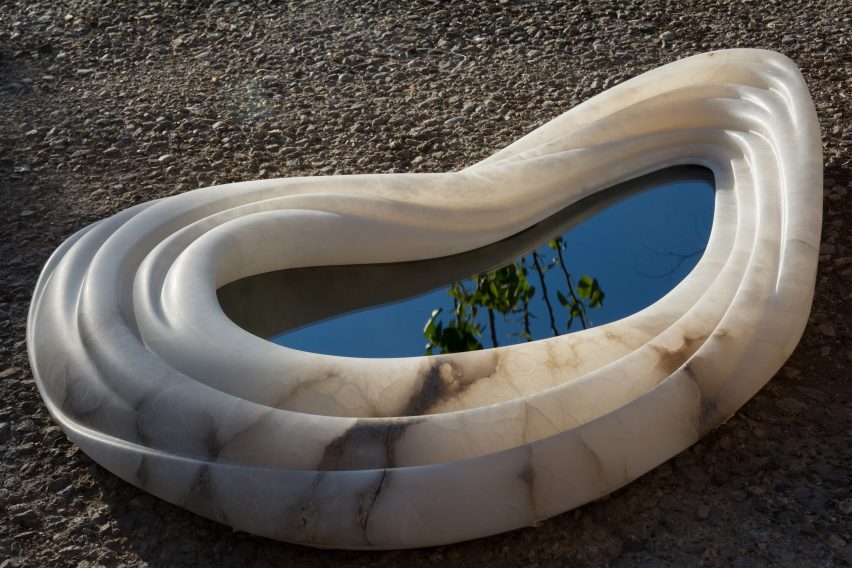
"Amarist's new work reinterprets alabaster stone as a moldable plastic element, returning it to its aqueous origin and showing each piece as a treasure emerged from an ancient sea," the duo said.
"Every design in the Aqua Fossil collection describes fluid organic compositions presenting alabaster stone as a liquid element."
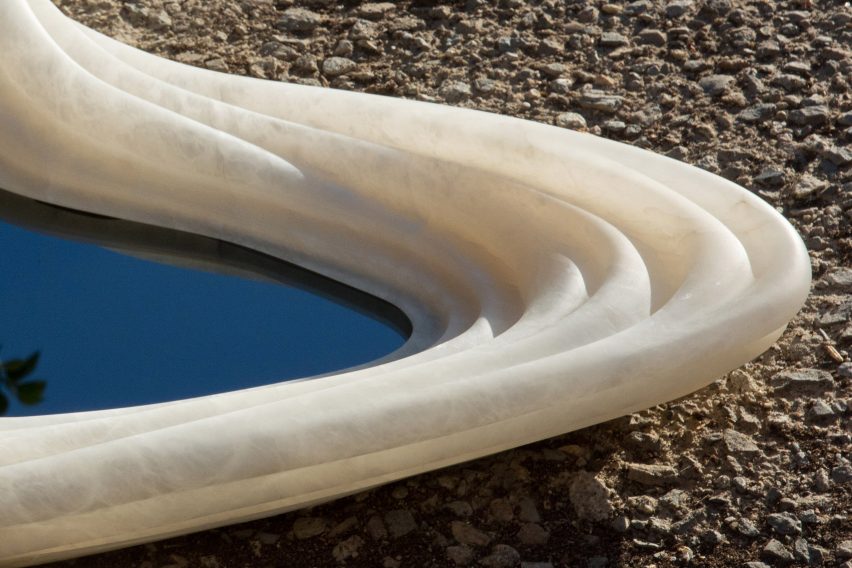
Items in the series include a coffee table with rounded bands that swoop and twist down from its top to become legs, a mirror wrapped in gently undulated bands, and lamps with amorphous glowing shades balanced on concrete pillars.
The Aqua Fossil pieces will be displayed in a virtual exhibition, where they will be presented among landscapes reminiscent of those in Spain that have been shaped by water. The exhibition will be available to view online in digital format later this year.
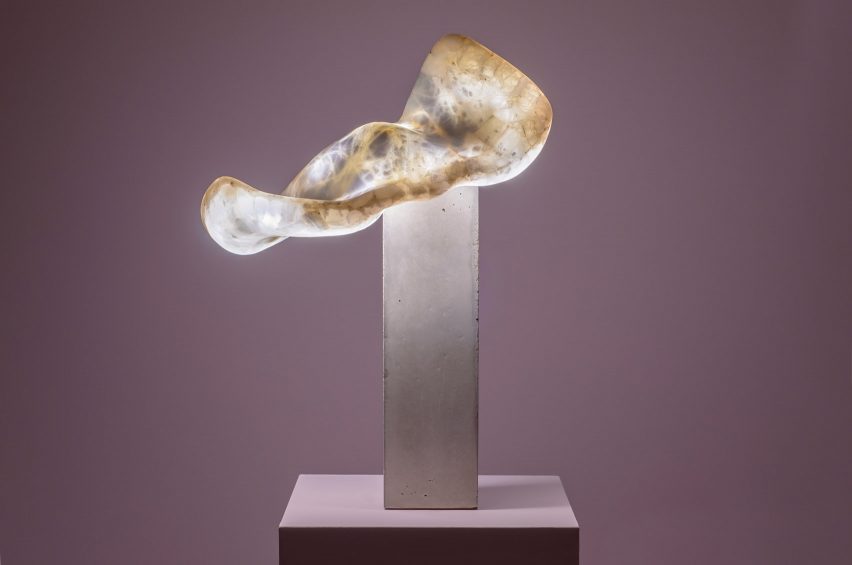
"One of the main objectives of the exhibition is to highlight the challenge of scarcity of natural resources, specifically of fresh water," Amarist Studio said.
"The exhibition will transport the viewer to a world of unknown nature, questioning whether the environments are real or fictional, and where water is presented as a fossil that comes from a distant past."
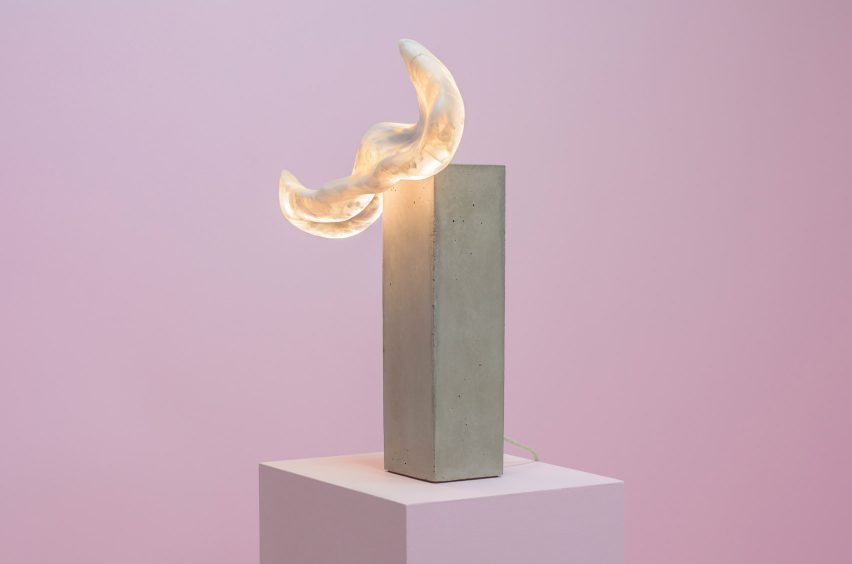
Lozano and Campo met as childhood friends, and set up the studio together based on a shared interest in the overlap of art and design. Their work has been exhibited internationally, and is available through Dutch gallery Priveekollektie Contemporary Art and Design.
To find out more about Aqua Fossil collection, visit the Amarist Studio website.
Photography is by Saul Lozano Photography.
Partnership content
This article was written by Dezeen for Amarist Studio as part of a partnership. Find out more about Dezeen partnership content here.
Publication sponsored by the Ministry of Culture of the Government of Spain, for the promotion and communication of Contemporary Spanish Art.